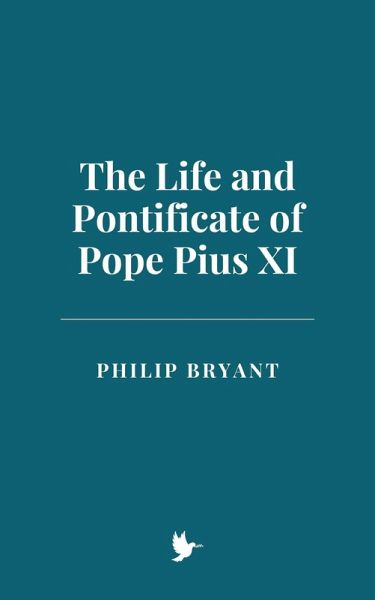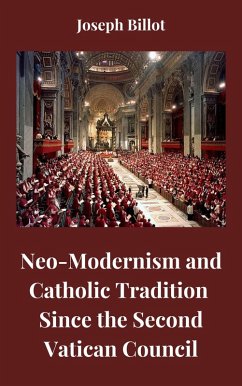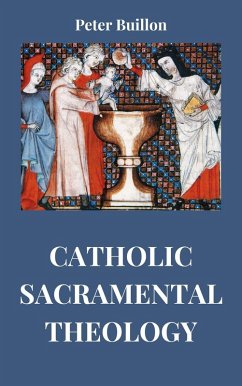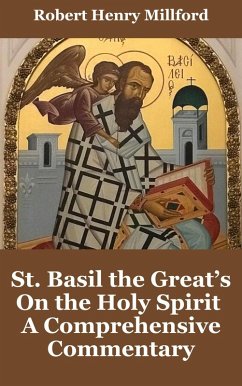
The Life and Pontificate of Pope Pius XI (eBook, ePUB)

PAYBACK Punkte
0 °P sammeln!
This work explores the pontificate of Pope Pius XI (1922-1939), a pivotal period marked by his efforts to navigate the Catholic Church through profound global transformations and challenges. Pius XI's leadership was defined by his theological depth, intellectual rigor, and bold engagement with the social, political, and cultural upheavals of the interwar period. Grounded in the vision expressed in his motto Instaurare Omnia in Christo ("To restore all things in Christ"), Pius XI sought to reaffirm the Church's spiritual mission while addressing the pressing realities of his time.Central to thi...
This work explores the pontificate of Pope Pius XI (1922-1939), a pivotal period marked by his efforts to navigate the Catholic Church through profound global transformations and challenges. Pius XI's leadership was defined by his theological depth, intellectual rigor, and bold engagement with the social, political, and cultural upheavals of the interwar period. Grounded in the vision expressed in his motto Instaurare Omnia in Christo ("To restore all things in Christ"), Pius XI sought to reaffirm the Church's spiritual mission while addressing the pressing realities of his time.
Central to this study is an analysis of Pius XI's significant contributions to Catholic social teaching, including his landmark encyclical Quadragesimo Anno, which articulated the principles of subsidiarity and solidarity, providing a moral framework for addressing economic injustice. His promotion of the kingship of Christ, as established in Quas Primas, reaffirmed the Church's universal authority in the face of rising secularism and totalitarian ideologies. Through concordats, encyclicals, and diplomatic efforts, Pius XI confronted Fascism, Nazism, and Communism, balancing pragmatic diplomacy with prophetic denunciations of dehumanizing ideologies.
The pontificate also laid the groundwork for future ecclesial developments, including the Second Vatican Council. Pius XI's emphasis on liturgical renewal, the role of the laity, and the universal mission of the Church anticipated many of the themes that would emerge in Vatican II. His support for the Liturgical Movement and his articulation of the Church as a global community prepared the Church for the challenges of modernity.
This study draws on primary sources, including Pius XI's encyclicals, speeches, and correspondence, as well as contemporary scholarship, to provide a comprehensive evaluation of his legacy. It highlights the complexities of his engagement with authoritarian regimes, his theological vision, and his efforts to uphold human dignity in an age of ideological polarization. Ultimately, Pius XI's pontificate serves as a model of leadership that integrated tradition with innovation, addressing the crises of his time with intellectual clarity, moral courage, and a profound commitment to the mission of the Church.
Central to this study is an analysis of Pius XI's significant contributions to Catholic social teaching, including his landmark encyclical Quadragesimo Anno, which articulated the principles of subsidiarity and solidarity, providing a moral framework for addressing economic injustice. His promotion of the kingship of Christ, as established in Quas Primas, reaffirmed the Church's universal authority in the face of rising secularism and totalitarian ideologies. Through concordats, encyclicals, and diplomatic efforts, Pius XI confronted Fascism, Nazism, and Communism, balancing pragmatic diplomacy with prophetic denunciations of dehumanizing ideologies.
The pontificate also laid the groundwork for future ecclesial developments, including the Second Vatican Council. Pius XI's emphasis on liturgical renewal, the role of the laity, and the universal mission of the Church anticipated many of the themes that would emerge in Vatican II. His support for the Liturgical Movement and his articulation of the Church as a global community prepared the Church for the challenges of modernity.
This study draws on primary sources, including Pius XI's encyclicals, speeches, and correspondence, as well as contemporary scholarship, to provide a comprehensive evaluation of his legacy. It highlights the complexities of his engagement with authoritarian regimes, his theological vision, and his efforts to uphold human dignity in an age of ideological polarization. Ultimately, Pius XI's pontificate serves as a model of leadership that integrated tradition with innovation, addressing the crises of his time with intellectual clarity, moral courage, and a profound commitment to the mission of the Church.
Dieser Download kann aus rechtlichen Gründen nur mit Rechnungsadresse in A, B, CY, CZ, D, DK, EW, E, FIN, F, GR, H, IRL, I, LT, L, LR, M, NL, PL, P, R, S, SLO, SK ausgeliefert werden.













